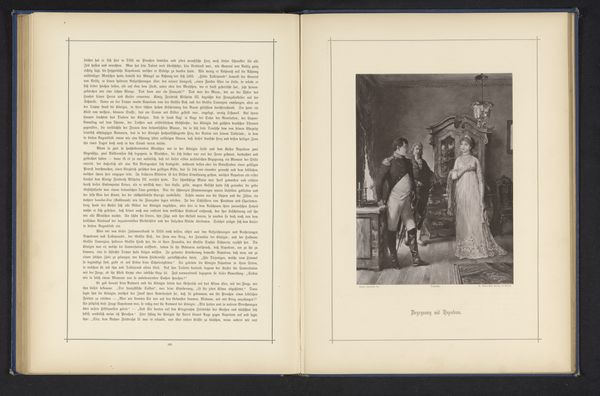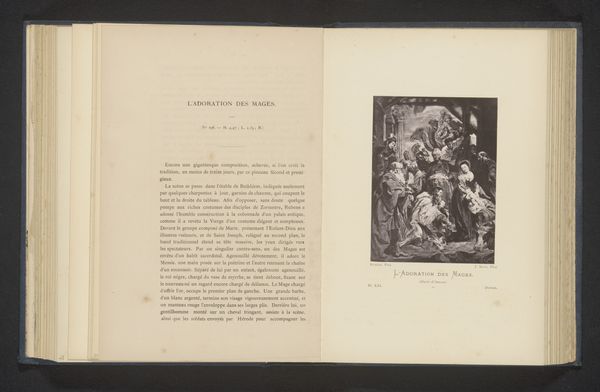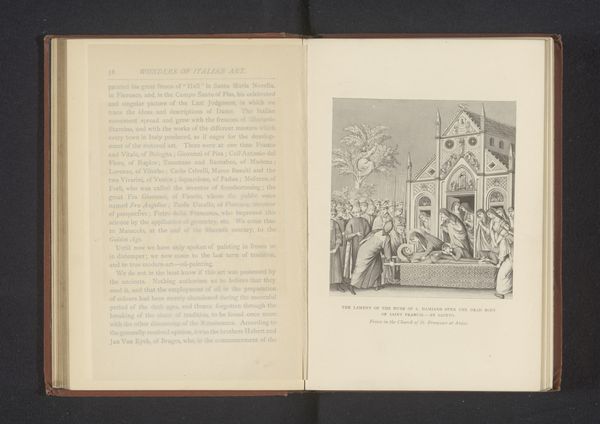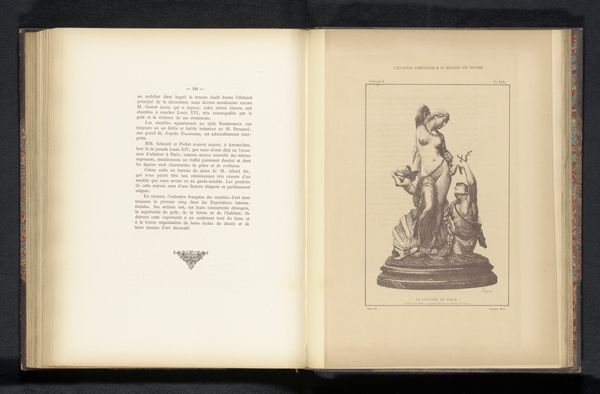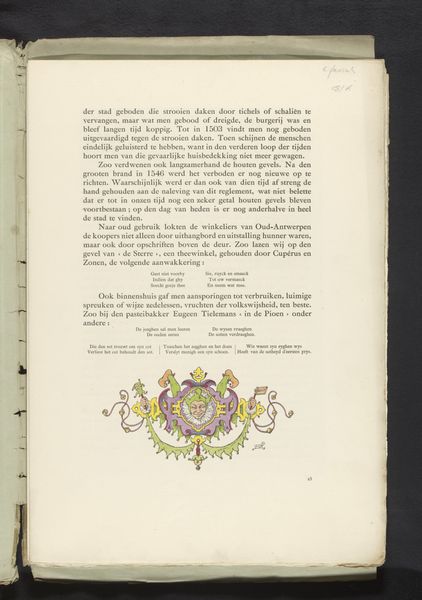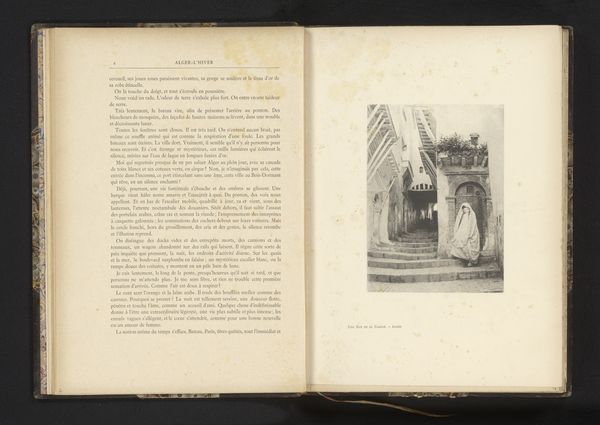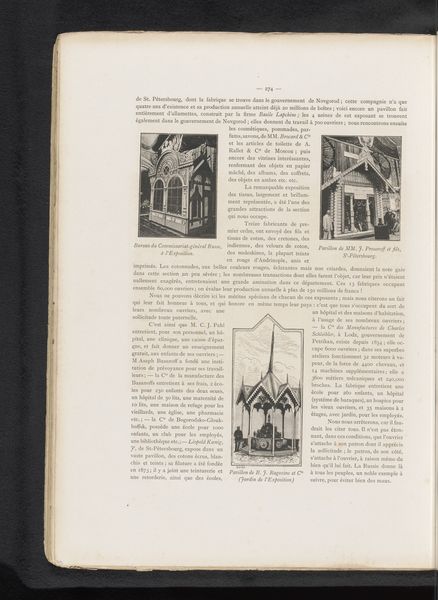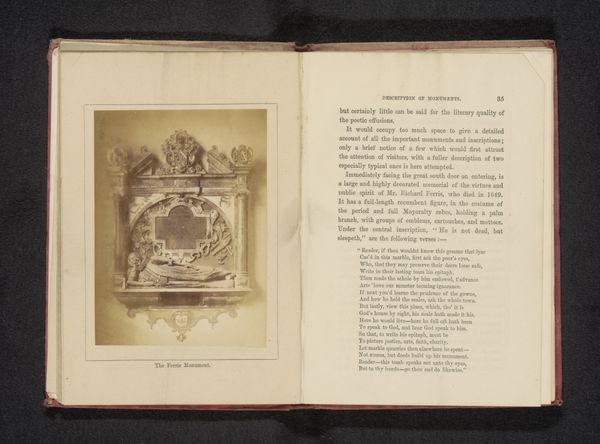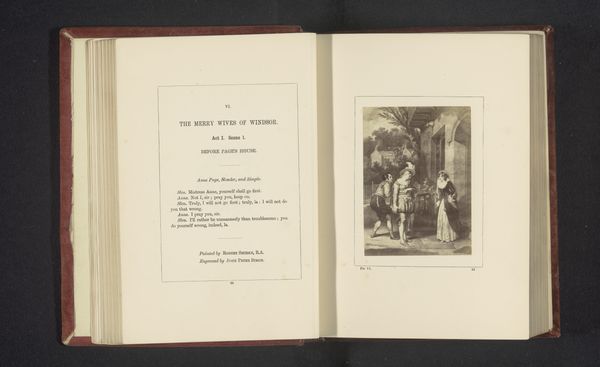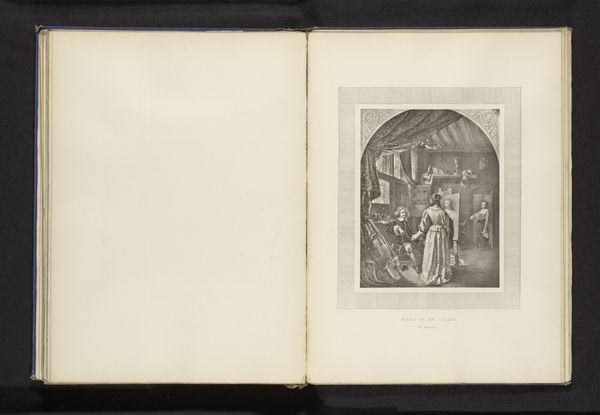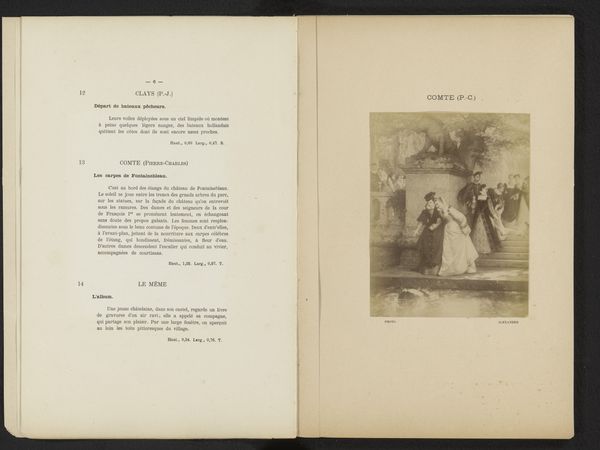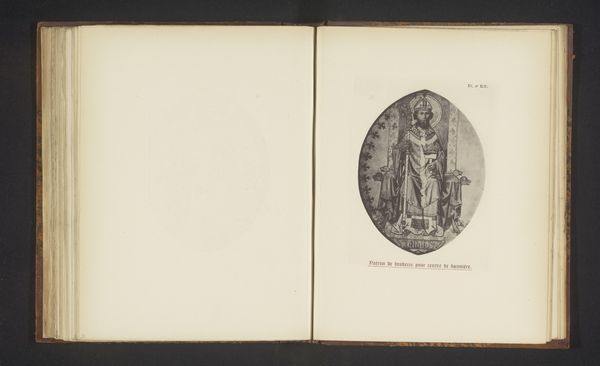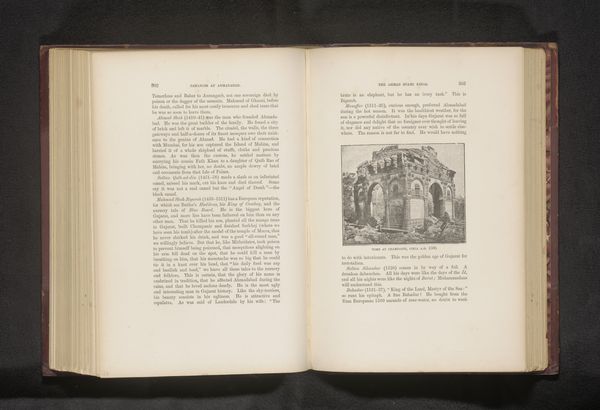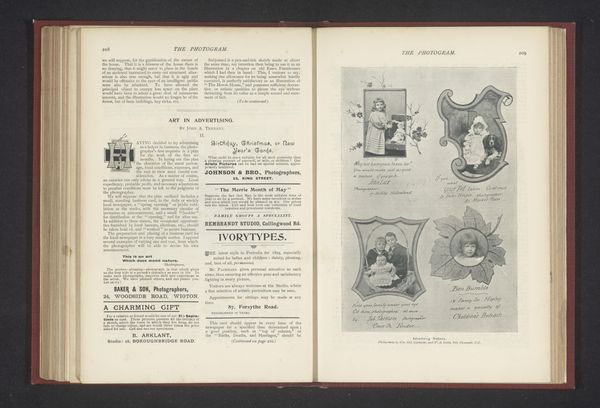
Gezicht op het paviljoen van Benedict Schroll junior op de Wereldtentoonstelling van 1885 in Antwerpen before 1885
0:00
0:00
graphic-art, print, engraving, architecture
#
graphic-art
# print
#
history-painting
#
engraving
#
architecture
Dimensions: height 134 mm, width 105 mm
Copyright: Rijks Museum: Open Domain
This print depicts Benedict Schroll Junior's pavilion at the 1885 World Exhibition in Antwerp, though its maker is unknown. The image itself, printed on paper, is a relatively inexpensive medium, making the spectacle accessible to a wide audience. The pavilion showcased Austrian craftsmanship and design on an international stage. Note the textiles, woodwork, and metalwork—all requiring skilled labor. The pavilion was intended to project an image of imperial opulence and industrial advancement. Examine the elaborate detailing, suggesting extensive handcraft. This level of ornamentation would have required many hours of labor, reflecting the social hierarchies of the time, where skilled artisans were employed to create luxurious displays for the elite. By considering the materials, production, and social context of this image, we can better understand the complex relationship between art, labor, and national identity in the late 19th century.
Comments
No comments
Be the first to comment and join the conversation on the ultimate creative platform.
